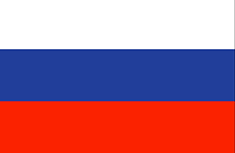全世界での祝日やお祝い
スワジランド, 本日はみなさまの国家的記念日です。EDIT ではみなさまのご多幸をお祈り申し上げます。
 ロシア連邦(沿ヴォルガ連邦管区) : 祝日、銀行休業日、休校日
ロシア連邦(沿ヴォルガ連邦管区) : 祝日、銀行休業日、休校日
ロシア連邦(沿ヴォルガ連邦管区) : 3ヶ月間の祝日、銀行および証券取引所の休業日、見本市、文化・スポーツイベント、行事、カーニバル、選挙に関するスケジュール完全版
Edit までご連絡ください
| 日付 | 名 | 種類 | 他 |
|---|---|---|---|
| 2024 4月 月曜日 1 | 春休み (終了) | 上記の銀行休業日に加えて学校休み(地域により異なります) | |
| 2024 4月 木曜日 11 | オリモホミンネユ | イスラム教 | |
| 2024 4月 土曜日 27 | 今日は休日ではありません | 世俗的な休日 | |
| 2024 4月 月曜日 29 | 祝日 | 世俗的な休日 | |
| 2024 4月 火曜日 30 | 祝日 | 世俗的な休日 | |
| 2024 5月 水曜日 1 | 労働者の日 | 世俗的な休日 | |
| 2024 5月 日曜日 5 | 正教会のイースター | 正統派 | |
| 2024 5月 木曜日 9 | 勝利の日 | 世俗的な休日 | |
| 2024 5月 金曜日 10 | 勝利の日 | 世俗的な休日 | |
| 2024 5月 金曜日 24 | 夏季休業 (開始) | 上記の銀行休業日に加えて学校休み(地域により異なります) | |
| 2024 6月 水曜日 12 | 国家的記念日 | 国家的記念日 | |
| 2024 9月 月曜日 2 | マトミン、゚ 」ィスKチヒ」ゥ | 上記の銀行休業日に加えて学校休み(地域により異なります) | |
| 2024 9月 火曜日 3 | マトミン、゚ 」ィスKチヒ」ゥ | 上記の銀行休業日に加えて学校休み(地域により異なります) |
春休み (終了)
-2024 4月 月曜日 1
学校の休み :
オリモホミンネユ
-2024 4月 木曜日 11
イスラム教 : Eid al-Adha Republic of Bashkortostan
今日は休日ではありません
-2024 4月 土曜日 27
世俗的な休日 :
祝日
-2024 4月 月曜日 29
世俗的な休日 :
祝日
-2024 4月 火曜日 30
世俗的な休日 :
労働者の日
-2024 5月 水曜日 1
世俗的な休日 : 1886年5月1日土曜日 シカゴ: 労働者350000名が1日の労働時間を8時間にすることを要求しストライキをおこす。全産業は全国的に麻痺した。月曜日には、警察が発砲。 28日、シカゴで再びストライキ。爆弾を発射した上、警察は発砲を開始した。 12名の死者のうち7名は警察官であった。 1889年にパリで社会主義国際運動の会談が行なわれ、この日を 国際的な労働者の日 にすると宣言した 。ソ連はナチスに従って同じ決断を下した。フランスでは、ヴィシー政権( 1940-1944 )の下で、 労働者の日 と改称され祝われた。
正教会のイースター
-2024 5月 日曜日 5
正統派 : Paid holiday
勝利の日
-2024 5月 木曜日 9
世俗的な休日 : The fighting of WWII tn Europe ended on May 2nd, 1945. The surrender of German troops was signed on May 4th and 5th but officially the war ended at midnight on May 8th 1945. To remember this important event, the Russians created a national holiday called Victory Day which is celebrated on May 9th in Russia. Russia mainly fought a war to defend itself, which is called a ¥¥¥ patriotic war¥¥¥ . In Russia almost all the families have at least one person who took part in the war. The other old citizens who did not fight during the war had to work in factories to make guns and preparations, which wasn¥¥¥'t easier than fighting. They too are honored on Victory Day.
The main reason for the celebration of Victory Day was to remember the people who died in the war. On that day, flowers are laid on their graves and veterans that are still alive go out on the streets wearing their medals and orders. There are few of them left now days and the number is getting smaller every year.
work on weekends and non-working holidays is not overtime work.
work on weekends and non-working holidays is not overtime work.
勝利の日
-2024 5月 金曜日 10
世俗的な休日 : The fighting of WWII tn Europe ended on May 2nd, 1945. The surrender of German troops was signed on May 4th and 5th but officially the war ended at midnight on May 8th 1945. To remember this important event, the Russians created a national holiday called Victory Day which is celebrated on May 9th in Russia. Russia mainly fought a war to defend itself, which is called a ¥¥¥ patriotic war¥¥¥ . In Russia almost all the families have at least one person who took part in the war. The other old citizens who did not fight during the war had to work in factories to make guns and preparations, which wasn¥¥¥'t easier than fighting. They too are honored on Victory Day.
The main reason for the celebration of Victory Day was to remember the people who died in the war. On that day, flowers are laid on their graves and veterans that are still alive go out on the streets wearing their medals and orders. There are few of them left now days and the number is getting smaller every year.
work on weekends and non-working holidays is not overtime work.
work on weekends and non-working holidays is not overtime work.
夏季休業 (開始)
-2024 5月 金曜日 24
学校の休み : One week later for 2, 8 & 10 grades
国家的記念日
-2024 6月 水曜日 12
世俗的な休日 : The First Congress of People's Deputies of the Russian Federation adopted the Declaration of State Sovereignty of the Russian Soviet Federative Socialist Republic on June 12, 1990. work on weekends and non-working holidays is not overtime work.
マトミン、゚ 」ィスKチヒ」ゥ
-2024 9月 月曜日 2
学校の休み :
マトミン、゚ 」ィスKチヒ」ゥ
-2024 9月 火曜日 3
学校の休み :


